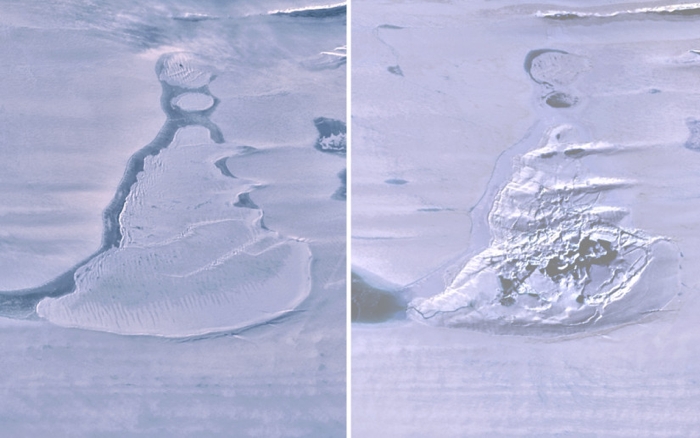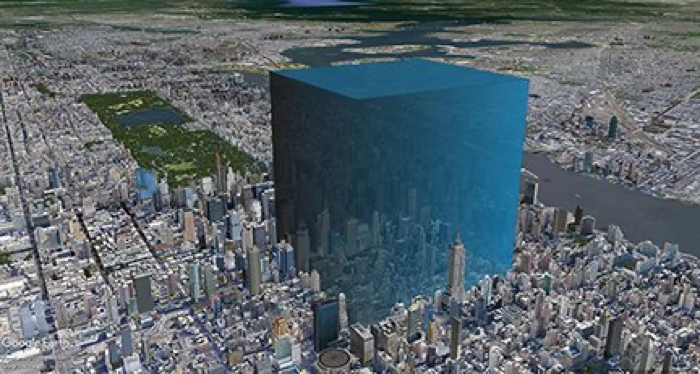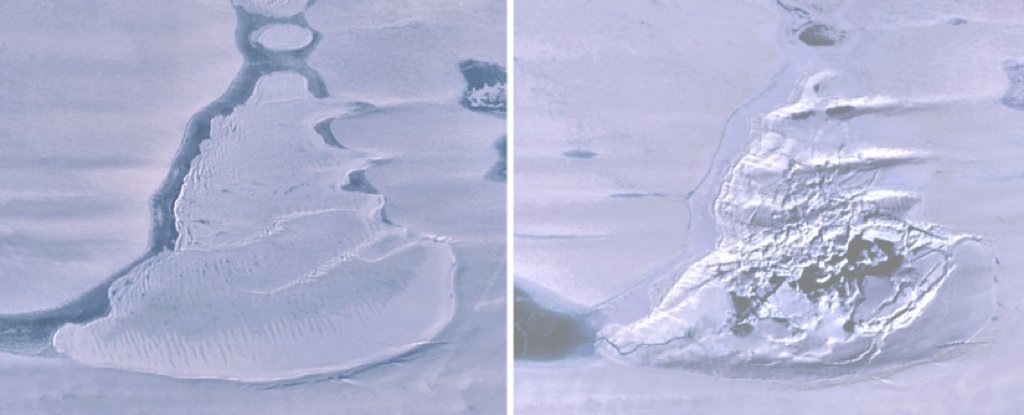Products You May Like
As the world gets warmer, staggering transformations are taking place in some of Earth’s coldest locations – events that might go completely unnoticed by humans, were it not for our eyes in the sky.
In a new study, satellite observations reveal one such stunning phenomenon: the sudden disappearance of a gigantic lake in Antarctica, which abruptly vanished from view during winter 2019.
This was no small body of water, researchers report, with estimates the lake on Amery Ice Shelf in East Antarctica held some 600–750 million cubic meters (21–26 billion cubic feet) of water: more than all the water in Sydney Harbor, or roughly twice the volume of San Diego Bay.
Of course, that much water doesn’t simply disappear into thin air. In this case, scientists say the huge reservoir most likely became too much for the ice layer underneath struggling to support it.
 (Warner et al., Geophysical Research Letters, 2021)
(Warner et al., Geophysical Research Letters, 2021)
Above: Landsat 8 images of the ice-covered lake (left) and the doline after the waters vanished (right).
“We believe the weight of water accumulated in this deep lake opened a fissure in the ice shelf beneath the lake, a process known as hydrofracture, causing the water to drain away to the ocean below,” says glaciologist Roland Warner from the University of Tasmania.
The deluge, which Warner likens to the heavy flow of Niagara Falls – except ultimately into the ocean under the ice shelf – took place over about three days, during which the entire lake was drained, satellite observations suggest.
Those readings didn’t just capture what the scene looked like from above; measurements from NASA’s ICESat–2 also registered changes in ice shelf elevation resulting from the water displacement.
Understandably, when such a giant pool of water is removed from a floating ice shelf, you would expect the ice shelf underneath to rise up, free of the previous weight pressing it down. Here, the affected region surrounding the lake lifted by up to 36 meters, the researchers say.
While the growing emergence of meltwater lakes and streams across the surface of Antarctica are generally considered evidence of climate change, the researchers say we don’t yet know enough about these hydrofracturing events themselves to say whether they too are linked.
But it’s something we need to watch, because when these lakes burst through unstable ice shelves, the volume of that water ingress directly adds to the ocean’s water volume, which in turn directly impacts sea level rise.
 (Philipp Arndt/Scripps Institution of Oceanography at UC San Diego)
(Philipp Arndt/Scripps Institution of Oceanography at UC San Diego)
Above: Visualization of the 600-750 million cubic meters of water lost to the ocean from the lake.
“Antarctic surface melting has been projected to double by 2050, raising concerns about the stability of other ice shelves,” the researchers write in their study, noting that “processes such as hydrofracture and flexure remain under-studied, and ice-sheet models do not yet include realistic treatment of these processes.”
It’s time we rectified that, because the flow of meltwater shows no signs of stopping.
After the lake’s disappearance in winter 2019, the lake began to fill again as ice melt picked up in summer 2020, peaking at a flow of over 1 million cubic meters of water per day flowing into the icy cavity left behind, called a doline.
It’s not fully clear if this newer lake will also vanish through fractures in the ice, or when that might occur, the researchers say, but it’s possible that the pooled meltwater in the doline could already be leaking to the ocean.
“It does appear that the fracture reopened briefly during the 2020 summer melt season, so it is certainly a system to watch,” Warner says.
“This event does raise new questions about how common these deep ice-covered lakes are on ice shelves and how they evolve.”
The findings are reported in Geophysical Research Letters.
